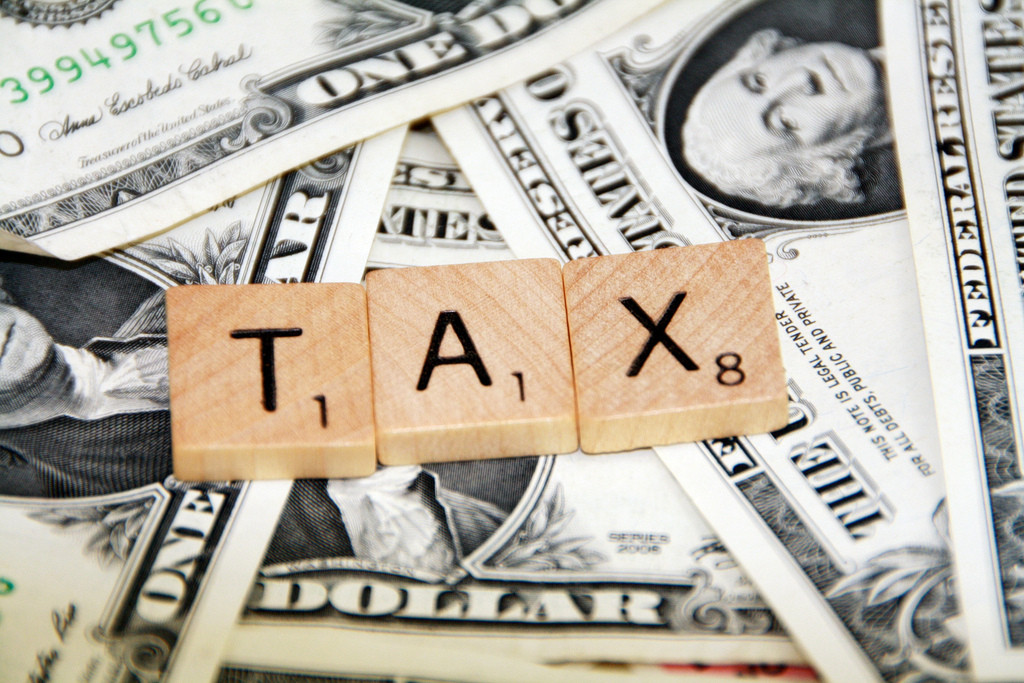Piketty’s publication has reignited the debate over taxation. Proponents of higher taxation seized the opportunity to increase taxes. Even some countries of Central Eastern Europe, a region that has traditionally prided itself on flat taxes, have faltered. The Czech Republic and Slovakia added an extra income bracket in 2012 and 2013, and Latvia imposed a “solidarity” tax, making their personal income taxation progressive. Similar proposals surfaced in Lithuania, but luckily to no effect.
There are many arguments against progressive taxation, from fairness to effectiveness to steering people’s choices. But how about reducing income inequality? Do progressive income taxes really reduce income inequality more than flat (proportional) income taxes? After all, is this not the main selling point of progressive taxation?
On one hand the answer seems obvious. Consider major indicators of income inequality, e.g. the Gini coefficient (how much actual income distribution differs from absolute equality), the at-risk-of-poverty rate (what proportion of population earn less than 60% of median income), and the quintile ratio (how much the richest fifth earn compared to the poorest fifth). They are constructed in such a way that, in theory, simply taking a larger proportion of income from the richer should reduce income inequality.
On the other hand, reality is more complicated. Consider a scenario where a highly desirable employee simply shifts the increase in income tax that is levied on the higher income bracket onto the employer (or client). The employee’s income after tax remains the same, but his/her pre-tax income increases.
In this scenario an increase in pre-tax incomes and pre-tax income inequality of highly paid professionals vis-a-vis low paid employees is a result of increased progressivity of taxes. One legitimately wonders how much of the very high pre-tax incomes, which the left loves to hate, are a result of high progressive taxation. Maybe progressive taxation itself adds to higher degree of income inequality, which it later goes to remedy?
Or consider a completely different scenario. A country with a high propensity for tax evasion introduces a low flat tax. Previously untaxed and unreported incomes become visible. All of a sudden, people who have been earning high incomes become legal. Their incomes and taxes are recorded in statistics. An impartial observer could conclude that the introduction of a flat tax resulted in increased income inequality. But a simple fact that this inequality existed before would be ignored (or left in footnotes). This then creates an illusion that low flat taxes increase income inequality. There are many other mechanisms as well. But what about empirical evidence? An important note is in order: Simply taking indicators of income inequality and correlating them with the type of income tax a country has is grossly inaccurate.
First, the inequality indicators measure the effects not just of taxation but also of redistribution. Maybe less income inequality is a result of effective redistribution systems (e.g. targeted transfers to the poor rather than to everyone)? Second, they do not reflect how much income taxes (and redistribution) actually reduce income inequality. Maybe countries with low income inequality have more equal incomes to begin with? If one is serious about measuring the efficacy of tax systems, we should compare pre-tax income inequality with post-tax (but before transfers) inequality.
What about real world data? If we looked at how much taxes reduced income inequality, we would see ambiguous results. Reductions in GINI income inequality were slightly larger in EU countries with flat taxes in 2009-2011, but smaller in 2007-2008 and 2013. In terms of the at-risk-of-poverty inequality indicator, countries with progressive tax systems reduced income inequality slightly more than flat tax countries (comparisons made with simulated data from Euromod).
The relation between tax rates, progressivity of taxation and income inequality are technically complicated and morally questionable. Should we punish the best and brightest for the sake of income equality? Are we considering income equality or equality of wealth? Should we focus consider inequality in a certain calendar year or lifetime income inequality? We need more research and better data. At the same time, attempts to discredit flat (proportional) income taxation for reasons of reduction of inequality are superficial at best and dishonest at worst.



